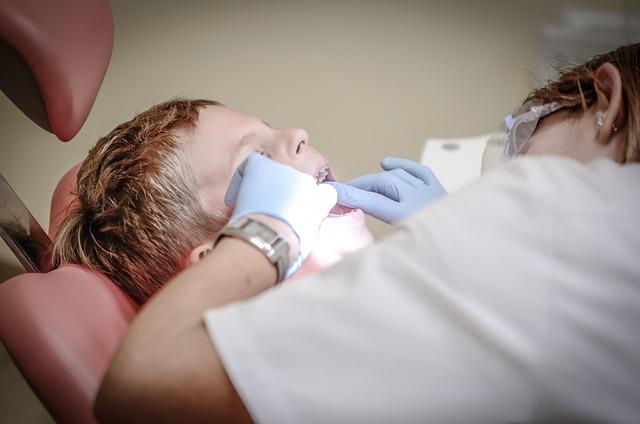Are you grinding your teeth at night? Find out if bruxism is more than just a dental problem. Discover the connection to neurological disorders.
1. Understanding Bruxism: A Mysterious Dental Phenomenon
Bruxism, a term that may sound unfamiliar to many, is a mysterious dental phenomenon that affects a significant number of individuals worldwide. This involuntary grinding or clenching of teeth often occurs during sleep, leaving many sufferers unaware of the damage caused until signs and symptoms start to manifest. Let’s delve into the intricate world of Bruxism to gain a better understanding of its nature and impact.
Bruxism can be categorized into two types: awake bruxism and sleep bruxism. Awake bruxism is often associated with stress, anxiety, or tension, and individuals may exhibit jaw clenching or tooth grinding during the day. Conversely, sleep bruxism mainly occurs during the night, making it more challenging to diagnose.
While the exact causes of bruxism remain elusive, several factors have been identified that may contribute to its development, including stress levels, sleep disorders, misaligned teeth, and even certain medications. **Doctors and dentists agree that recognizing the signs and symptoms of bruxism is crucial in addressing the problem early on.** These may include tooth sensitivity, excessive tooth wear, headaches, jaw pain or stiffness, and disrupted sleep. Ignoring these indicators can lead to further complications, such as tooth fractures, jaw disorders, and even chronic pain.
2. Exploring the Connection: Bruxism and the Nervous System
The connection between bruxism and the nervous system is a fascinating area of study that sheds light on the underlying causes of teeth grinding and clenching. Bruxism, which refers to the excessive and involuntary grinding or clenching of teeth, has long been associated with stress and anxiety. However, recent research has shown that bruxism is closely linked to the nervous system, specifically the central nervous system.
One of the primary factors contributing to bruxism is an overactive central nervous system, which can be triggered by a variety of factors such as stress, certain medications, and imbalances in neurotransmitters. Individuals with an overactive nervous system may experience heightened muscle activity, including the muscles responsible for controlling jaw movement. This increased muscle activity manifests as teeth grinding or clenching.
Furthermore, studies have revealed that bruxism is also associated with sleep disorders, particularly those affecting the central nervous system. Conditions such as sleep apnea and insomnia have been found to increase the likelihood of bruxism episodes during sleep. The disrupted sleep patterns and abnormal brain functions associated with these disorders can further exacerbate the nervous system’s role in bruxism.
Understanding the intricate connection between bruxism and the nervous system is crucial for effective diagnosis and treatment. By addressing the underlying issues within the nervous system, healthcare professionals can develop targeted therapeutic approaches to alleviate bruxism symptoms.
3. Delving into the Science: Is Bruxism a Neurological Disorder?
Bruxism, commonly known as teeth grinding, has long been a subject of interest in the medical community. While often attributed to stress or dental problems, recent research suggests that it may also be linked to neurological disorders. In this section, we will delve into the science behind bruxism and explore its potential connection to the central nervous system.
Neurological disorders affect the brain, spinal cord, and nerves throughout the body, resulting in a range of symptoms and complications. Scientific studies have found a correlation between bruxism and certain neurological conditions such as Parkinson’s disease and epilepsy. These findings indicate that bruxism may be more than just a dental issue and could be an early indicator of an underlying neurological disorder.
Furthermore, research has revealed that bruxism often occurs during sleep and is associated with disruptions in the sleep-wake cycle. This suggests a potential involvement of the brain’s control mechanisms governing sleep regulation and motor coordination. By better understanding the neurological aspects of bruxism, medical professionals can develop more targeted treatment strategies that address the root causes rather than solely focusing on symptom management.
While the link between bruxism and neurological disorders is a promising area of study, further research is needed to establish a definitive connection and fully comprehend the underlying mechanisms. By investigating the intricate relationship between bruxism and the central nervous system, scientists aim to improve diagnosis, treatment, and ultimately, the quality of life for individuals affected by this condition.
4. The Complexity of Bruxism: Unraveling the Truth behind Neurological Influences
Bruxism, commonly known as teeth grinding, has long been recognized as a phenomenon of dental origin. However, recent research has shed light on the complex relationship between bruxism and neurological influences. This revelation has revolutionized our understanding of the condition, suggesting that it is not solely a dental issue, but rather a multifaceted problem that involves various neurological factors as well.
Understanding the neurological influences behind bruxism is crucial in developing effective treatment strategies. Here are some key insights:
- The role of the central nervous system (CNS): Studies have revealed a clear association between bruxism and the central nervous system. Dysfunction in the CNS, particularly in the areas responsible for regulating sleep, emotions, and movement, can contribute to the development and persistence of bruxism. This link highlights the importance of exploring the neurological aspects of bruxism for a comprehensive diagnosis and treatment plan.
- The impact of stress and anxiety: Bruxism is strongly correlated with stress and anxiety, two factors that can significantly affect neurological processes. High levels of stress can disrupt the balance of neurotransmitters in the brain, leading to an increased likelihood of teeth grinding. Similarly, anxiety can trigger an overactive sympathetic nervous system response, which may manifest as bruxism. Recognizing and addressing these psychological factors is integral in managing and alleviating bruxism symptoms.
- The connection to sleep disorders: Bruxism is often associated with sleep disorders such as sleep-related movement disorders or obstructive sleep apnea. Neurologically, disruptions in sleep architecture or issues with the motor control during sleep can contribute to teeth grinding. Identifying and treating underlying sleep disorders in individuals with bruxism is crucial for effective management of the condition.
By unraveling the truth behind the neurological influences on bruxism, we have come to realize the intricate nature of this condition. A comprehensive approach that recognizes the interplay between dental and neurological factors is essential for accurate diagnosis and successful treatment. With this knowledge, healthcare professionals can devise personalized strategies to alleviate the symptoms and improve the quality of life for individuals affected by bruxism.
5. Neurological Triggers: Unveiling the Factors that Contribute to Bruxism
Bruxism, also known as teeth grinding, is a common condition that affects many individuals. While there are several factors that can contribute to bruxism, understanding the neurological triggers behind this condition is crucial for effective treatment. By studying these triggers, researchers have been able to shed light on the complex interplay between our brain and the muscles responsible for jaw movement.
One neurological trigger of bruxism is stress and anxiety, which can activate the body’s “fight or flight” response. In turn, this heightened state of arousal can lead to increased muscle activity in the jaw, resulting in teeth grinding. Another trigger is sleep disorders, such as sleep apnea, which can disrupt the normal sleep patterns and cause involuntary movements, including teeth grinding during sleep.
Furthermore, certain medications and substances, such as alcohol and stimulants, can affect the neurological circuits responsible for muscle movement and contribute to bruxism. Additionally, an abnormal bite or misalignment of the teeth can also impact the neurological control of jaw movement, leading to teeth grinding.
- Stress and anxiety activate the body’s “fight or flight” response.
- Sleep disorders, like sleep apnea, can disrupt normal sleep patterns.
- Medications and substances, such as alcohol and stimulants, can affect muscle movement.
- An abnormal bite or misalignment of teeth can impact jaw movement.
Understanding these neurological triggers is essential for developing effective treatments for bruxism. By addressing the underlying causes and implementing relaxation techniques, improving sleep habits, and adjusting medications, individuals can find relief from the damaging effects of teeth grinding.
6. The Brain-Bite Connection: How the Nervous System Impacts Teeth Clenching
The brain-bite connection is a fascinating topic that explores the intricate relationship between the nervous system and teeth clenching, also known as bruxism. Understanding this connection is crucial in managing and treating this common dental condition. Here, we delve into the ways the nervous system impacts teeth clenching and highlight key points to help shed light on this phenomenon.
1. Central Nervous System:
The central nervous system plays a crucial role in the development of bruxism. When the brain receives stress signals, it activates certain areas responsible for motor control, including the muscles used during clenching. This involuntary response trickles down to the nerves, causing them to fire erratically and prompting individuals to clench their teeth unconsciously.
2. Autonomic Nervous System:
Another crucial component involved in teeth clenching is the autonomic nervous system. This part of the nervous system regulates involuntary actions, such as the tightening of muscles. When individuals experience heightened arousal or anxiety, the autonomic nervous system can become overactive, leading to increased muscle tension, including the jaw muscles responsible for teeth clenching. Understanding this connection helps us identify possible underlying causes of bruxism.
3. Neurotransmitters:
Neurotransmitters are chemical messengers that play a vital role in the communication between nerve cells. Imbalances in certain neurotransmitters, such as dopamine and serotonin, have been linked to conditions like bruxism. These imbalances can disrupt the normal functioning of the nervous system, contributing to the development or exacerbation of teeth clenching.
By unraveling the complex relationship between the nervous system and teeth clenching, dental professionals can develop targeted treatment plans to alleviate symptoms. Identifying and addressing the underlying causes of bruxism allows for a more holistic approach to providing relief and improving overall dental health.
7. Can Bruxism be Considered a Neurological Disorder? Exploring the Evidence
Bruxism, commonly known as teeth grinding or jaw clenching, has long been associated with dental problems, stress, and anxiety. However, recent research indicates that it may also have underlying neurological causes. While the precise mechanisms are still under study, there is growing evidence to suggest that bruxism could be classified as a neurological disorder, affecting the central nervous system.
One of the key pieces of evidence supporting this notion is the link between bruxism and certain neurological conditions, such as Parkinson’s disease and Huntington’s disease. Studies have shown a high prevalence of bruxism among individuals with these disorders, indicating a potential relationship between the two. Furthermore, researchers have observed abnormal brain activity and neurotransmitter imbalances in individuals with bruxism, reinforcing the idea of a neurological basis for this condition.
In addition, the role of the autonomic nervous system in bruxism has also been explored. The autonomic nervous system regulates involuntary functions in the body, including sleep patterns and muscle activity. Disruptions in the activity of this system have been identified in bruxism patients, suggesting a neurological component. These findings provide further support for the argument that bruxism is indeed a neurological disorder.
- Bruxism may be characterized by abnormal brain activity and neurotransmitter imbalances.
- There is a high prevalence of bruxism among individuals with Parkinson’s disease and Huntington’s disease.
- The autonomic nervous system, responsible for regulating involuntary functions, is disrupted in bruxism patients.
While more research is needed to fully understand the neurological aspects of bruxism, the accumulating evidence challenges the traditional perception of this condition as solely dental or psychological. Recognizing bruxism as a neurological disorder could lead to improved diagnostic methods and more targeted treatment approaches, addressing the root cause rather than just the symptoms.
8. Unraveling the Mystery: Identifying the Role of Neurological Dysfunction in Bruxism
Bruxism, commonly known as teeth grinding, has long puzzled researchers and patients alike. However, recent studies have pointed towards a potential link between bruxism and neurological dysfunction. Understanding the role of neurological factors in bruxism is crucial for effective diagnosis and treatment.
1. Neurological Disorders: Certain neurological disorders, such as Parkinson’s disease or Huntington’s disease, are associated with an increased risk of bruxism. Identifying the presence of these conditions in patients exhibiting teeth grinding symptoms can help explain their bruxism and guide appropriate treatment strategies.
2. Central Nervous System Abnormalities: The central nervous system plays a vital role in regulating muscle movements, including the ones responsible for grinding teeth. Dysfunction or abnormalities within this system may result in bruxism. However, further research is needed to establish concrete connections between specific central nervous system anomalies and bruxism.
3. Stress and Anxiety: While stress is not strictly neurological, it can have a significant impact on the brain and nervous system. Individuals experiencing high levels of stress or anxiety may be more prone to bruxism. These emotional factors can lead to increased muscle tension and involuntary teeth grinding during sleep or even while awake.
By unraveling the mystery surrounding the role of neurological dysfunction in bruxism, healthcare professionals can develop targeted treatment plans. Whether it involves addressing underlying neurological disorders, managing stress and anxiety, or utilizing oral appliances, a comprehensive approach can be implemented to alleviate the symptoms and improve the quality of life for bruxism sufferers.
9. Neurological Findings: Understanding the Link between Bruxism and the Brain
Bruxism, also known as teeth grinding, is a dental condition that affects many individuals. While its causes have been extensively studied, recent research has shed light on a potential link between bruxism and neurological factors. Understanding this connection is crucial for developing effective treatment strategies and preventing further complications.
Researchers have found evidence suggesting that bruxism can be influenced by various neurological conditions, such as brainstem dysfunction, anxiety, and sleep disorders. This implies that the brain plays a significant role in the development and persistence of bruxism. Additionally, studies have shown that individuals with certain neurological disorders, such as Parkinson’s disease and Huntington’s disease, are more prone to bruxism than the general population. Identifying these neurological findings can help clinicians better understand the underlying mechanisms of bruxism and tailor treatment plans accordingly.
Moreover, neuroimaging techniques have provided valuable insights into the brain activity associated with bruxism. Magnetic resonance imaging (MRI) scans have revealed abnormal brain structures and functional connectivity in individuals with bruxism compared to those without. These findings suggest that bruxism might be influenced by alterations in specific brain regions responsible for motor control and sensory processing. However, further research is required to fully comprehend the intricate relationship between bruxism and the brain.
- Bruxism can be influenced by neurological conditions such as brainstem dysfunction, anxiety, and sleep disorders.
- Individuals with neurological disorders like Parkinson’s disease and Huntington’s disease are more prone to bruxism.
- Neuroimaging techniques like MRI have shown abnormal brain structures and functional connectivity in individuals with bruxism.
10. Treatment Options: Managing Bruxism as a Neurological Condition
There are several treatment options available for managing bruxism as a neurological condition. These approaches aim to alleviate symptoms and minimize the damage caused by teeth grinding and jaw clenching.
1. Dental interventions:
- Using a dental splint or mouthguard can provide a protective barrier between the upper and lower teeth, preventing further damage.
- Orthodontic treatment may help realign teeth and correct any underlying bite issues that contribute to bruxism.
- Replacing missing teeth with implants or bridges can also help stabilize the bite and reduce grinding.
2. Lifestyle modifications:
- Stress reduction techniques, such as meditation, yoga, or counseling, can help manage stress levels that often exacerbate bruxism.
- Avoiding stimulating substances like caffeine and alcohol, especially close to bedtime, may also help reduce nocturnal teeth grinding.
- Adopting a consistent sleep routine and practicing good sleep hygiene can promote better sleep quality and minimize bruxism episodes.
3. Medications:
- In some cases, muscle relaxants or medications commonly used to treat anxiety or depression can be prescribed to alleviate bruxism symptoms.
- Botox injections into the jaw muscles can help reduce muscle tension and minimize grinding.
- Botanical supplements like valerian root or chamomile may provide mild relief for bruxism symptoms, but more research is needed to support their effectiveness.
It’s important to consult with a healthcare professional or dentist to determine the most suitable treatment option based on the severity and underlying factors contributing to bruxism.
In conclusion, bruxism is not solely a neurological disorder but rather a complex condition with various underlying factors. While the nervous system may play a role, it is essential to consider other dental, psychological, and lifestyle aspects. Understanding the multifactorial nature of bruxism is crucial in developing effective treatment approaches and managing its impact on individuals’ quality of life.



